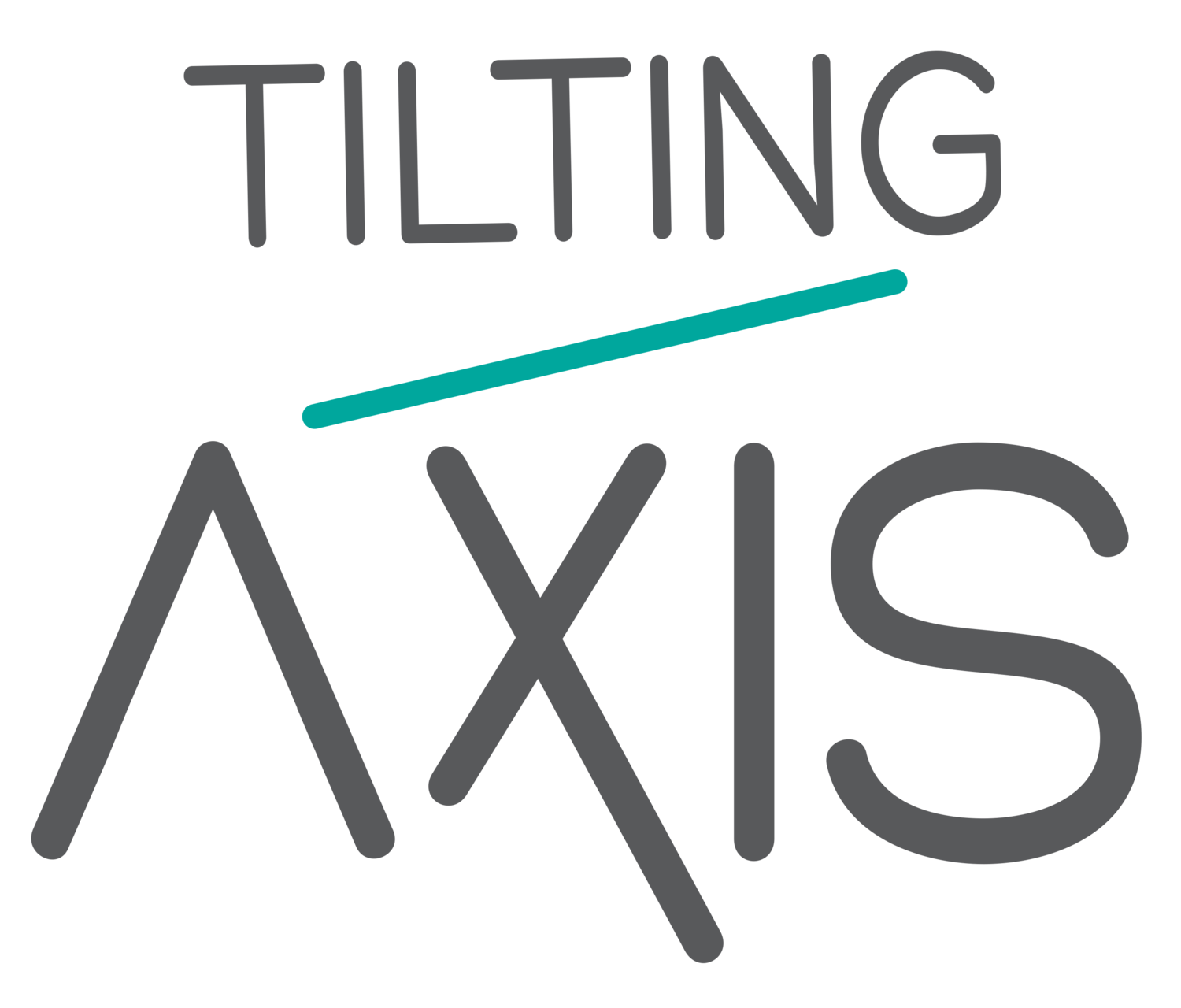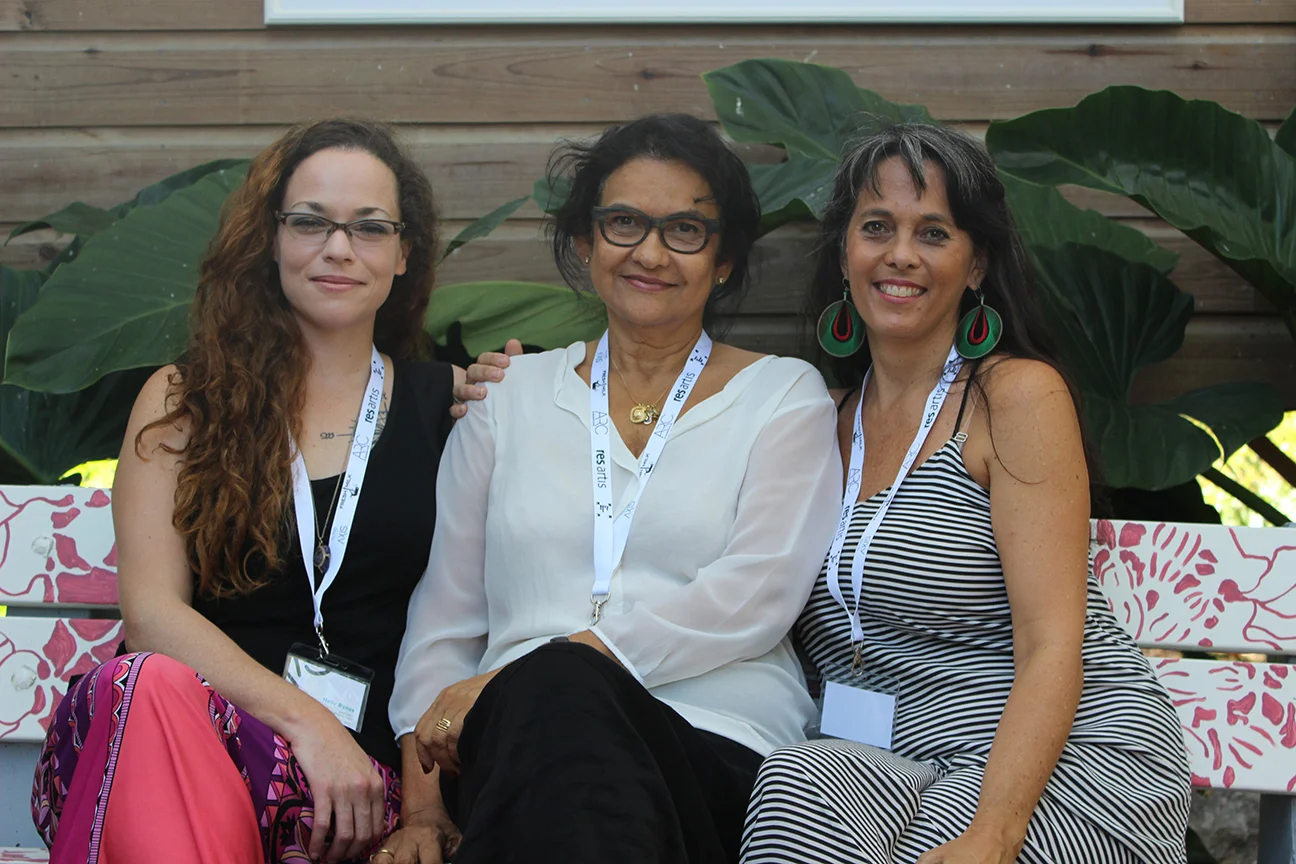




Intro
TILTING AXIS 2015 REPORT
—
Within and Beyond the Caribbean:
Shifting Models of Sustainability and Connectivity
St. George, Barbados | 27th - 28th February 2015
Intro
TILTING AXIS 2015 REPORT
—
Within and Beyond the Caribbean:
Shifting Models of Sustainability and Connectivity
St. George, Barbados | 27th - 28th February 2015
Tilting Axis is a roving project conceptualized by ARC Magazine and the Fresh Milk Art Platform Inc. The first iteration was hosted at Fresh Milk in Barbados on February 27 + 28, 2015 under the banner Tilting Axis: Within and Beyond the Caribbean | Shifting Models of Sustainability and Connectivity. The two-day conference brought together independent art organisations and museums operating across the Caribbean, U.S., E.U. and China. The goal of the meeting was to negotiate strategic regional and international alliances for the further development of infrastructure, production and markets for the Caribbean's visual arts sector.

Partner and Local Reports
Partner and Local Reports
Those of us working in the region confront issues of sustainability on a daily basis and often wonder if the bottom will collapse from under our feet. International visiting artists and researchers in residence at Fresh Milk often express surprise at the conditions under which we work and are shocked by how little support there is for the arts in Barbados and the Anglophone Caribbean.
Our work with Fresh Milk began a couple of years ago when we approached them to collaborate on our project of comprehensibly mapping the world of residencies.
The gaps that exist in our current domestic and regional infrastructure is tantamount to the doctrines and supporting policies that were set up during the postcolonial era as each nation state tried to understand their independence and the development of singular and sometimes unique national narrative.
From PAMM’s point of view, I would like to think we were able to convey our long-term interest in supporting and collaborating in the region, in sharing intellectual and financial support whenever possible.
Many of the international representatives of institutions confirmed a lack of interest from their institutions in discovering more about the Caribbean.
On that note, it struck me that the question of what it would mean to ‘move out of the global periphery’ not only remained unexamined, but that the question of ‘global visibility’, had it been examined more closely, would have divided the participants into two camps.
I was surprised and a little dismayed to find that there were so few artists actually present.

Regional and International Reports
Regional and International Reports
The intimate gathering allowed everyone to connect directly and to establish some meaningful relationships. Often in a larger conference this element can get lost and given that one of the main focuses was ‘connectivity’ this model worked well for the first year.
The sessions raised a number of concerns including a need to see art as that which exists beyond a gallery or museum...
As a region, we need more projects that tell our story through our own eyes and not through the lens of the Caribbean fantasy that the world has made of us.
At the same time I saw and understood that Ateliers ’89 is in the same boat as everybody else, that we all have to cope and deal with the similar problems, the need for that personal connection, workspace, finances, and how to come up with new solutions and of course to receive recognition for what we are doing.
Questions such as — the elaboration of new models for contemporary art in the Caribbean; the interest in the region and of the region for the contemporary art world and markets; questions of art education and its funding, along with public targeting and the added value off experiences from abroad and return — have been relevant for me.
Logistics affect our trade routes, our ability to engage with the rest of the world, to easily access facilities.
"I think it's an act of rebellion to be a whole person... It's an act of rebellion to show up as your whole self, and especially the parts that are complex, that are unfinished, that are vulnerable.’" —Courtney Martin
Another thing I found interesting was that it wasn’t about the artist as individual but about art itself. About the society, the added value of art for the society and how you can contribute to the development of art education and formation through social cultural art projects.
PAMM's earnest engagement with the conversations happening in the Caribbean, as well the research currently being conducted by the museum in the region for upcoming exhibitions, was promising.
It may be a hybrid between an ark, a ferry and a cruise liner – but it is definitely not sea worthy, being a craft for abstract thought, and riddled with holes no doubt for that matter.
As China Residencies’ co-founder & program manager, I joined the conversation to bring insights from China’s similarly remote and emerging art ecosystem, as well as to learn from Fresh Milk’s role as a mapping and connecting force amongst independent organisations in the Caribbean region.
Most importantly, this conference led to interesting creative developments such as the conception of Caribbean Futures, a project that could potentially create research, exhibitions, and public programs and opportunities.
The art histories of the Caribbean have largely been constructed externally, most often from the centers of the Caribbean diaspora such as the UK or North America, and so Tilting Axis marked a shift towards self-representation.
It is a great pleasure to be part of this promising encounter Tilting Axis is providing. The Caribbean, despite its global relevance as a tourist destination, has yet to gain recognition as an inexhaustible source of visual art to its full potential and production.
I often witness art organizations willing to create a formal network to join forces, resources, strategies and become a stronger voice and a key player both locally and internationally.
The main reason for the failure is the lack of funding and human resources to manage the network. Ideas and enthusiasm vanish as soon as people go back home and dive into their daily routine to sustain their own organization.
The question put on the table was straightforward, simple in its formulation, but enormously complex in its extraction and execution. So much was clear from the start. The conference asked the question of how to sustain and connect Caribbean art practices through and from a larger global field.

























It is critical that this gathering took place on Caribbean soil and that the visual arts sector was considered from within the archipelago as a counterpoint to many decisions that are often made about the region from external locations.
The need for more art writers and venues to publish art writing, as well as creating better access to, and training for existing writers in the region.
Addressing barriers to connectivity — whether this be policy at a governmental level, logistical in terms of movement, both geographical and linguistic, and funding — across multiple regional platforms.
How to develop standards and create spaces for critique?
We do not know the world and the world does not know the Caribbean.